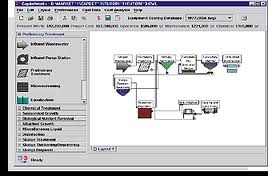


Exporters would no longer receive diversion credit for mixed plastics unless they can demonstrate that those plastics will be eventually separated and recycled.ĪB 962: Reusable glass bottles. These regulations would reduce the export of mixed plastics that ultimately are not recycled. On the way to sewage treatment, they collect grease that create “fatbergs,” which can clog sewage lines.ĪB 881: Exporting waste. The wipes give off microfibers that end up in the ocean after sewage treatment. This would require “Do not flush” labeling. Here’s a closer look at the proposals on the governor’s desk.ĪB 818: Disposable wipes. So far, the highest profile state laws to reduce plastics have been the ban on single-use plastic takeout bags at grocery stores, ratified by voters in 2016, and 2018’s legislation banning the distribution of plastic straws in full-service restaurants unless customers requested them. “I don’t see any reason why he would veto any of the bills, other than industry opposition.” “We addressed all the issues the administration raised during the legislative process, so I think we’ve addressed any implementation concerns,” Lapis said.

This year’s legislation is intended to reduce the flow of trash to landfills, reduce the amount of single-use plastic that ends up in the ocean and make it clearer to consumers what packaging and products are truly recyclable. “Six in 10 Americans made incorrect assumptions about the recyclability of common plastic food delivery items,” according to the report. Meanwhile, a new study from the Ocean Conservancy reports that 69% of most commonly collected items over the past 35 years of the International Coastal Cleanup are “effectively unrecyclable.” Nearly half of those were food and beverage-related, and roughly half were plastic.

In 2019, the state had reduced the flow of solid waste by just 37% from the 1989 benchmark, according to Allen. Several other countries followed China’s lead, and California was left with inadequate infrastructure to deal with the waste it once exported. That undercut California’s waste-reduction efforts, which were already falling short. Over the past four years China - long the primary destination for California’s recyclables - phased out importation of the trash, in part because much of what they were receiving was not being recycled. In 2011, the Legislature increased that goal to 75%. In 1989, the state established the Integrated Waste Management Act, which called for reduction or recycling of 50% of solid waste to by 2020. She noted that if that effort fails, a citizens initiative with similar provisions already has enough verified signatures to qualify for the November 2022 ballot. “The passage of SB 54 would … ensure we put wildlife over waste by making producers responsible for the trash they produce,” Deehan said.Īn allen spokesperson said the senator hopes to pass the bill in the first half of next year. A study this year by the environmental group Oceana documented 1,792 cases where sea animals died as a result of waste-related strangulation and drowning, and plastic ingestion, which disrupts digestion and leads to starvation for a number of species. “It’s definitely a landmark year, both in terms of the number and scope of the bills that were passed, not to mention the level of interest among legislators,” said Nick Lapis of Californians Against Waste, a 44-year-old non-profit that advocates for more recycling as well as less single-use packaging and products.Įnvironment California’s Laura Deehan agreed, saying that too much of California’s waste now ends up in nature.
Crack surfer 12 crack#
Other legislation would provide new incentives for reusing glass beverage bottles, crack down on misleading recycling labeling, and reduce the export of plastics that end up in foreign landfills. The six bills include a measure that would expand plastic straw restrictions to plastic utensils and condiment packages - and would apply not only to full-service restaurants but also take-out and fast food restaurants, which are currently exempted from the straw law. 6 bills on recycling, plastic await Newsom’s signature – Orange County RegisterĪ sweeping package of bills aimed at reducing plastic waste and improving recycling efforts, approved by the Legislature this month, are being celebrated by environmentalists and trash-reduction activists as they await final consideration by Gov.


 0 kommentar(er)
0 kommentar(er)
